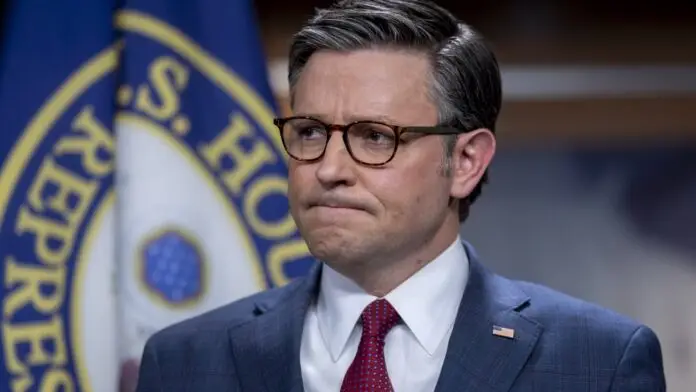In the wake of a tragedy that has rocked the political world, a group of 23 House Republicans is calling for a sweeping investigation into what they call “radical left-wing extremism” in America. Their demand comes just days after Charlie Kirk, a high-profile conservative commentator, was assassinated on a college campus in Utah — an act they believe reflects a rising pattern of violence against conservative voices.
Led by Texas Representative Chip Roy, the lawmakers are urging Congress to create a special investigative committee with full subpoena power. Their goal? To root out what they believe are organized networks of left-wing radicalism — including groups like Antifa, and even wealthy donors like George Soros, who they argue help fund extremist activity through political and nonprofit channels.
For millions of Americans — especially older generations who’ve lived through decades of political unrest — this moment feels dangerously familiar. But many are asking: is this a call for justice, or the beginning of an even deeper political divide?
The Assassination That Sparked It All
On what should have been an ordinary day at Utah Valley University, the nation was left stunned when 22-year-old Tyler Robinson opened fire, fatally shooting Charlie Kirk during an event where Kirk was scheduled to speak.
Law enforcement quickly identified Robinson as the prime suspect. Early reports describe him as a radicalized young man with extreme leftist views, who grew increasingly isolated from his conservative family. The FBI and local authorities continue to investigate the shooter’s motivations, but to many on Capitol Hill — particularly among Republicans — the incident is seen as part of a growing wave of political violence targeting conservatives.
“This wasn’t just an isolated act of violence,” Rep. Chip Roy said during a press briefing. “It’s the culmination of years of unchecked radicalism, emboldened by silence and in some cases, encouragement, from the far-left.”
Republicans Push for Subpoena Power to Investigate Antifa, Soros
The Republican lawmakers are calling on Speaker of the House Mike Johnson to immediately greenlight a congressional probe into radical left-wing networks, complete with subpoena authority.
In their official request, the 23 GOP representatives say they want to investigate:
- The organizational structure and funding of Antifa-affiliated groups
- The role of wealthy political donors, particularly George Soros, in supporting far-left activism
- The rise of online radicalization in left-wing digital spaces
- Alleged government inaction or double standards when it comes to investigating left-wing political violence
While some of these points may sound familiar to longtime followers of U.S. politics, the stakes now feel far more immediate. With a prominent conservative voice gunned down, and ideological tensions running dangerously high, the political temperature in Washington is reaching a boiling point.
Democrats Urge Caution, Condemn Violence — But Reject “Partisan Blame”
Democratic leaders have publicly condemned the killing of Charlie Kirk, calling it a senseless act of violence that has no place in American life. But they’ve also pushed back against the Republican effort to frame the tragedy as part of a left-wing conspiracy.
“Let’s be very clear: violence is unacceptable, no matter who commits it,” said Rep. Jamie Raskin (D-MD). “But turning this into a partisan witch hunt isn’t the solution. We should be coming together, not tearing each other further apart.”
Some Democrats argue that the Republican focus on Antifa and George Soros plays into conspiratorial thinking, and say there’s no solid evidence tying these groups or individuals directly to acts of violence like the Kirk assassination.
Still, many older Americans watching from home feel conflicted. While they may not support extremist rhetoric from either side, they also recognize that conservative voices seem to be under attack in ways they haven’t seen in decades.
A Nation Growing Weary of Extremism
To many Americans — especially seniors who’ve lived through political assassinations, riots, and cultural upheaval — this moment feels deeply unsettling.
“I remember the 1960s,” says Margaret, a retired schoolteacher from Indiana. “We thought we were past the days of political violence. But now, it’s back — and this time, it’s online, it’s organized, and it’s everywhere.”
Indeed, whether it’s far-left or far-right, domestic extremism in America appears to be growing more emboldened and more dangerous. The assassination of a national figure like Charlie Kirk serves as a harsh wake-up call: political disagreements are no longer just debates — they’re turning deadly.
And for older Americans, many of whom value tradition, civility, and respect for opposing views, this shift is heartbreaking.
The Soros Factor: A Symbol of Influence and Controversy
No name draws more debate in this political storm than George Soros, the billionaire philanthropist known for funding progressive causes across the globe. To some, he’s a champion of civil rights and open democracy. To others — especially on the right — he’s a shadowy figure accused of bankrolling radical activism.
Rep. Chip Roy and others are demanding a full accounting of how Soros-linked donations may be fueling extremist movements in the U.S., either directly or indirectly. While such claims remain controversial, the GOP insists this is a necessary step to restore public trust and uncover the truth behind rising political violence.
“Our job isn’t to point fingers blindly,” Roy said. “Our job is to ask the hard questions, follow the money, and protect Americans from those who believe violence is an acceptable political tool.”
What Would the Investigation Look Like?
If the special committee is approved, it would function similarly to past congressional probes, such as the January 6th investigation or the House Un-American Activities Committee of the mid-20th century.
The committee would:
- Issue subpoenas to far-left organizations, media platforms, and political donors
- Hold public hearings to investigate connections between rhetoric and violence
- Review FBI and DHS responses to left-wing extremism over the past decade
- Investigate social media’s role in radicalizing young Americans
Whether the committee moves forward depends on how House leadership responds — and whether Democrats in the Senate would even consider such a move. But in the court of public opinion, the pressure is mounting.
Older Americans Ask: Is This What Politics Has Become?
For many seniors, this isn’t just another news cycle. It’s a sobering moment that raises fundamental questions about what kind of country we’re becoming.
“I’ve always voted Democrat,” says Tom, a Vietnam veteran from Ohio. “But I’m starting to feel like nobody’s really standing up for unity anymore. It’s just hate and blame from every direction.”
Whether you’re a Democrat, Republican, or Independent, the feeling is widespread: we’re losing the ability to disagree without destruction. The death of Charlie Kirk, no matter one’s politics, is a loss that should remind every American of what’s at stake.
The Road Ahead
The assassination of Charlie Kirk has opened a wound that goes far deeper than politics. It has reignited questions about how far we’ve let things go — and what we’re willing to do to bring our country back from the edge.
The 23 House Republicans pushing for a radical left investigation may be tapping into a broader concern — that political violence is no longer a fringe threat, but a growing force in American life.
Whether or not their committee becomes reality, one thing is certain: we are living through a dangerous moment, one where words have consequences, and inaction could be fatal.
Now is the time for leadership — not just speeches and soundbites, but real accountability, from both sides. Because if we continue down this road, Charlie Kirk may not be the last casualty in a nation that has forgotten how to listen.



